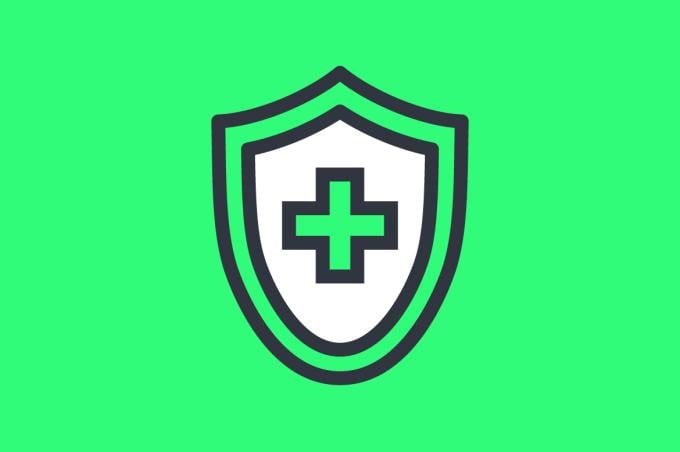Many people who have tested positive for COVID-19 continue to experience symptoms that require care months after recovering. These patients, known as COVID long-haulers, often have symptoms that linger 30 days after SARS-CoV-2 infection. To address the needs of these patients, Atlantic Health System—a member of the AMA Health System Program—created a recovery center focused on COVID long-haulers.
In August, Steven Sheris, MD, senior vice president of physician enterprise at Atlantic Health and president of the Atlantic Medical Group, walked into the office of Scott Lauter, MD, an internist and chief medical officer of the group, and proposed developing a COVID-19 recovery center. Dr. Lautner agreed, organized a working group of clinical stakeholders and the Atlantic COVID Recovery Center opened six weeks later in October. To date, the recovery center has seen about 300 patients with COVID long-hauler symptoms.
“We had been seeing a lot of these patients back from the initial wave of COVID-19 and trying to help them, but really looking at it more from the pulmonary standpoint,” said Federico Cerrone, MD, a pulmonary critical care and sleep medicine specialist with Atlantic Medical Group and center co-director. “Especially in the beginning, a lot of these patients were lost.”
“We are seeing patients with PTSD, anxiety, depression, brain fog, headaches and overwhelming fatigue that lasts for months," said David Sousa, MD, a pulmonologist and critical care physician at Atlantic Medical Group as well as center co-director. “We’ve also seen some persistent tachycardia as well as patients who seem really healthy, but desaturate in the final minutes of their six-minute walk test.”
Patient-centered approach
“When Dr. Lautner and Dr. Sheris started talking about opening up a COVID recovery center, we started looking at taking it as a more patient-centered approach,” said Dr. Cerrone. “It’s not just looking at the pulmonary issues, but really looking at cardiac, neurocognitive and behavioral issues while helping the patient navigate the system.”
“We do an intake that looks at all the systems, screens people for all the things that we know post-COVID recovery does, gets you appropriately referred and timely seen,” said Dr. Sousa, adding that they have a “feedback circle to create a plan that is unique to the patient because with COVID, people experience this differently.”
Mental health has affected everyone
“We've all had COVID—whether or not we had the virus—because we've all been impacted emotionally,” said Dr. Sheris. “There’s a subset of people who are manifesting as either behavioral issues or somatic body complaints that are a result of the COVID trauma, if not from the COVID virus itself.”
“General post-ICU syndrome is the cognitive behavioral health and physical symptoms that the patient experiences, but there is a component called PICS-F, which is really the family, friends, their social network and what they feel,” said Dr. Sousa. “Doing a lot of these conversations with families over Zoom, not being able to be there at the bedside, there’s a tremendous impact on people’s support structure.”
Peer support groups for behavioral health
Whether someone is a COVID long-hauler or a family member, the Atlantic COVID Recovery Center offers a virtual peer support group that meets every Wednesday. Made up of peers as well as physicians and other health professionals, individuals are offered support on how to manage emotional and psychological challenges that accompany COVID-19.
“When you have these patients, who have confusing chronic conditions that are poorly understood, the one thing they need most of all is a place to call home, a place that they can be seen, they can be listened to, they can be taken at face value,” said Dr. Lauter. “And then the team will act on what they hear.”
“In the beginning, it was really important to reassure patients that they weren't alone, and other people were experiencing it and going through the same thing—it goes a long way,” said Dr. Cerrone, adding that “our peer support groups have done a great job with helping them.”
Easy access to the program
“It's all about access, availability and removing barriers to care,” said Dr. Sheris. “If anything, COVID has created a lot of medical uncertainty, but it's also laid bare a lot of the fragmentation, inequity and access to health care.”
“Even in non-COVID illness, patients often select the specialist they think corresponds to the symptoms that they're having,” he said. “And they go from specialist to specialist until they find the right one. That's the normal order of business in a fragmented health care system. That's not coordinated.
“Now you take COVID where patients have vague symptoms that are not clearly attributable to a specific specialist,” Dr. Sheris added, noting that with COVID long-haulers, they are left to arrange an appointment with a specialist who they think they need.
But with the Atlantic COVID Recovery Center, “we just tell patients, ‘If you think you're sick and you think it's from COVID, come see us first. We'll help you figure it out,’” he said. “It's a very empathetic program and that’s the nature of making it patient-centered.”
Resources are also available from the AMA to help physicians manage their own mental health and well-being during the COVID-19 pandemic. The AMA also provides practical strategies for health system leadership to consider in support of their physicians and care teams during COVID-19.




